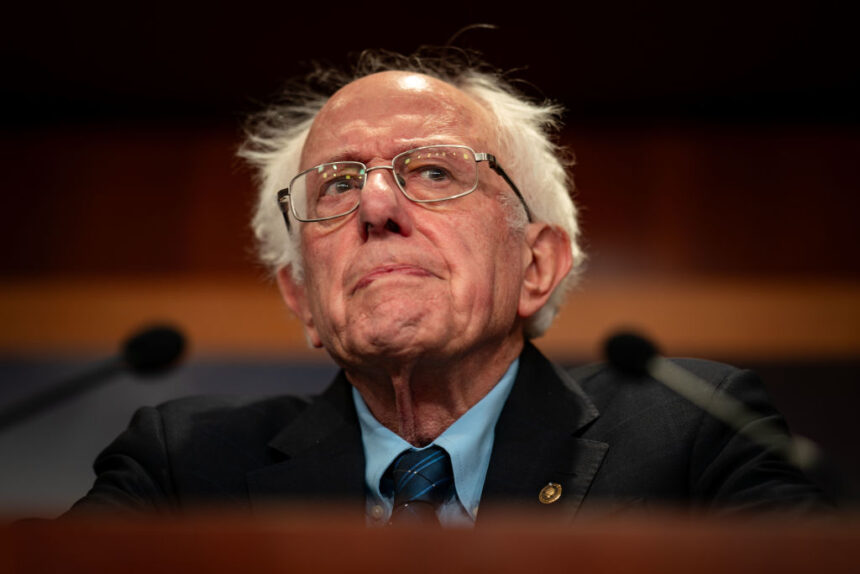The Senate drug pricing hearing that was scheduled for last Thursday — only to be scrapped due to a lack of participation — is back on.
Johnson & Johnson CEO Joaquin Duato and Merck CEO Robert Davis agreed late last week to testify at an upcoming Senate hearing about high drug costs. The two CEOs conceded after initially refusing to testify several weeks ago, prompting Sen. Bernie Sanders, (I-VT), to threaten to subpoena both of them.
The Senate Health, Education, Labor and Pensions (HELP) committee will hold a hearing on February 8 to question the Big Pharma CEOs on why the cost of drugs in the U.S. is significantly higher than in other countries. Bristol Myers Squibb CEO Chris Boerner will also testify.
The HELP committee hasn’t issued a subpoena in over 40 years, but Sanders was prepared to use the panel’s power to bring these executives forward for testimony.
Sanders used a similar tactic last year when he threatened to subpoena Starbucks CEO Howard Schultz to have him testify at a hearing over the company’s alleged union busting. Schultz ultimately testified without being subpoenaed.
In a statement, Sanders noted the HELP committee would no longer hold a vote on January 31 on whether to subpoena the two CEOs in lieu of the February 8 hearing.
“Let me thank the CEOs of J&J and Merck for agreeing to join the CEO of Bristol Myers Squibb and voluntarily testify before the HELP committee,” Sanders stated. “The use of subpoena was clearly a last resort and I’m delighted that these CEOs will be coming into our committee voluntarily.”
Getting Duato and Davis to testify didn’t come without a fight, however. Both CEOs initially refused to attend the hearing, with their companies noting in statements that the HELP hearing request appeared to be retaliation against drugmakers launching lawsuits against the federal government over the Inflation Reduction Act.
Merck, J&J and Bristol Myers Squibb are among the list of drugmakers that have sued the federal government over the Medicare drug pricing negotiation provision. Merck’s diabetes drug Januvia, J&J cancer drug Imbruvica and Bristol Myers Squibb’s blood thinner Eliquis are among the first 10 drugs chosen to have their prices negotiated by Medicare.
The companies also tried to offer other executives to testify, arguing that the CEOs did not have expertise in drug pricing. Sanders pushed back against the comments in a press conference last Thursday.
“The reasons the companies have given us as to why they don’t believe their CEOs should testify range from the laughable to the absurd,” Sanders said. “They really are pretty funny. They have told us that the CEOs of J&J and Merck just don’t have the expertise necessary to tell us why they charge so much more for their medicine here than abroad. The CEOs of the company don’t have the expertise, really?”
Sanders continued: “Merck went so far to tell our staff that their CEO is a tax attorney, who is not an expert on prescription drug prices. Well, maybe the CEOs of these pharmaceutical companies should become experts on why they’re ripping off the American people.”
The move is part of a much larger push among lawmakers to dig into high drug costs, especially since Sanders ascended to head of the HELP committee last year.
The HELP committee recently probed pharmacy benefit managers over their role in high drug costs in addition to Moderna CEO Stéphane Bancel over the company’s proposed price hikes of its COVID-19 vaccine.







